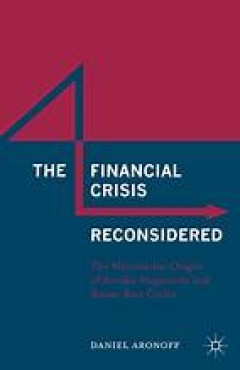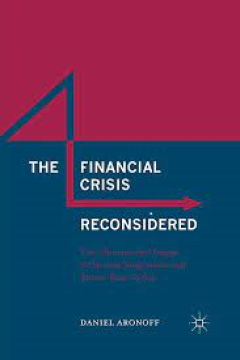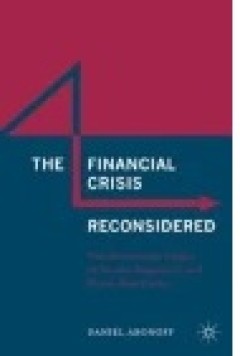Filter by

The Financial Crisis Reconsidered
In The Financial Crisis Reconsidered, Aronoff challenges the conventional view that reckless credit produced the US housing boom and the financial crisis, explaining how the large current account deficit, and its mercantilist origin, was a more fundamental cause. He also demonstrates that the decision to provide relief for bank creditors rather than underwater homeowners was responsible for the…
- Edition
- 1
- ISBN/ISSN
- 978-1-137-54789-7
- Collation
- XVII, 291
- Series Title
- -
- Call Number
- -

The Financial Crisis Reconsidered
Aronoff proposes a novel theory to account for the ultimate origins of secular stagnation and economic volatility. He shows how accumulation, which occurs when a person or country earns more than it ever plans to spend, generates both an excess of saving and a deficiency in demand. While savings provide the funds to promote booms, under-consumption ensures that these booms will turn bust and th…
- Edition
- -
- ISBN/ISSN
- 978-1349575473
- Collation
- 308 pages
- Series Title
- The Financial Crisis Reconsidered
- Call Number
- -

The Financial Crisis Reconsidered
Aronoff proposes a novel theory to account for the ultimate origins of secular stagnation and economic volatility. He shows how accumulation, which occurs when a person or country earns more than it ever plans to spend, generates both an excess of saving and a deficiency in demand. While savings provide the funds to promote booms, under-consumption ensures that these booms will turn bust and th…
- Edition
- -
- ISBN/ISSN
- 978-1-137-54789-7
- Collation
- XVII, 291
- Series Title
- -
- Call Number
- -
 Computer Science, Information & General Works
Computer Science, Information & General Works  Philosophy & Psychology
Philosophy & Psychology  Religion
Religion  Social Sciences
Social Sciences  Language
Language  Pure Science
Pure Science  Applied Sciences
Applied Sciences  Art & Recreation
Art & Recreation  Literature
Literature  History & Geography
History & Geography